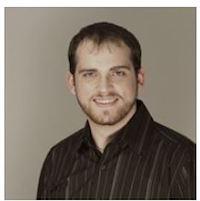
Mr. Hodge works at BakerRisk’s Houston office in the Process Safety Group. His work focuses on risk-based design of new facilities, as well as risk-based upgrades to existing facilities using BakerRisk’s dispersion and blast modeling software tools, SafeSite3G© and QRATool©
Experience:
- Performed studies for a wide variety of chemistries including gas plants, refineries, polyethylene plants, and ammonia production facilities.
- Conducted CO2 gas ingress tests to determine building toxic response and optimize shelter-in-place procedures and buildings to meet toxic risk criteria.
- Worked on several research endeavors such as the efficacy of water curtain mitigation of ammonia, the modeling of the consequences from the release of pyrophoric materials, and the vulnerability of safety critical equipment to fires and explosions.
- Supervises the BakerRisk Intern Program and coordinates the BakerRisk new hire training program.
- Prepared course for AIChE Academy Fundamentals of Process Safety –“What Every New Engineer Needs to Know about Process Safety”
- Worked with the Mary K. O’Connor Process Safety Center under the direction of Dr. M. S. Mannan at Texas A&M University:
- Worked on several projects ranging from off-shore reliability assessments to chemical plant antiterrorism.
- Master’s thesis was entitled, “Determining Bounds for a Pressure Hazard Rating to Augment the NFPA 704 Standard” and required extensive knowledge of reactive chemicals and adiabatic calorimetry.
- Coursework focused on process safety and quantitative risk analysis.
- Contributor to Lee’s Loss Prevention, 4th edition.
- While working for ExxonMobil Chemical, designed new curriculum for the company’s “Fundamentals of Safety” Course which is used as an introduction to all elements of process safety for ExxonMobil Chemical and Refining.
- Was a Welch Fellow and George Holmes Richter Research Award winner for his research on novel MRI contrast agents with Dr. L. Wilson and molecular motorized “nanocars” with Dr. J. Tour. He focused on
synthetic organic chemistry and chemical education.
- Employed as a chemistry instructor in the Katy, TX school system for two years, where he wrote new curriculum materials and coordinated the school’s chemical hygiene and safety program. He also worked with the FIRST (For the Inspiration and Recognition of Science and Technology) organization to introduce engineering concepts into the high school curriculum.
